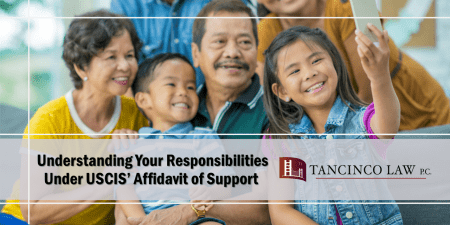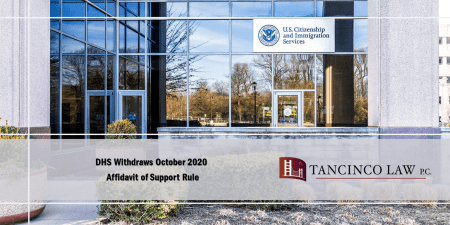Are you a U.S. citizen or permanent resident planning to sponsor or co-sponsor an eligible family member for a green card? If so, you’ll need to sign an Affidavit of Support, known as Form I-864. But what exactly does this entail, and what are your responsibilities? Let’s break it down.
What Is Form I-864?
By signing Form I-864, you’re making a legally binding promise to financially support the person you’re sponsoring. This ensures they won’t have to rely on government assistance.
Who Must Sign?
Primary Sponsor: The main sponsor must be a U.S. citizen or permanent resident petitioning for the immigrant’s green card.
Joint Sponsor: If the primary sponsor’s income doesn’t meet the requirements, a joint sponsor is needed. This person shares the same responsibilities as the primary sponsor.
Sponsor Eligibility
To be a sponsor, you must:
- Be at least 18 years old.
- Be a U.S. citizen or permanent resident.
- Have an income at least 125% above the Federal Poverty Guidelines.
Key Responsibilities
As a sponsor, you must ensure the immigrant maintains an income of at least 125% of the Federal Poverty Guidelines. If their income falls below this level, you’re responsible for providing financial support.
Financial Risks and Considerations
Legal Consequences: If you fail to provide support, the sponsored person can sue you. You may also be liable for court and legal fees.
Bankruptcy: Declaring bankruptcy does not absolve you of your obligations under Form I-864.
Government Benefits: You must repay any means-tested benefits the sponsored person receives, such as Medicaid, SNAP, TANF, or SSI. You’re not responsible for reimbursing non-means-tested benefits like emergency medical services or unemployment benefits.
When Do Your Sponsorship Responsibilities End?
Your financial duties as a sponsor conclude when any of the following occurs:
- The individual gains U.S. citizenship.
- They complete 40 quarters of work (about ten years).
- They permanently leave the United States.
- They are deported but gain U.S. residency again through another sponsor.
- They pass away.
Continuing Obligations After Divorce
Divorce does not end your responsibilities under Form I-864. Courts generally do not recognize private agreements, such as pre-marital, post-marital, or divorce contracts, as valid reasons to avoid these obligations.
Withdrawing Sponsorship
You may withdraw your sponsorship before the green card application is approved. Once permanent residency is granted, your obligations are fixed unless they end under one of the specified conditions.
Address Change Notification
You must report any address changes within 30 days by submitting Form I-865 to USCIS to avoid fines of up to $5,000.
Understanding Your Commitment
Signing Form I-864 carries significant legal responsibilities. Make sure you understand these obligations before proceeding. Consider consulting a lawyer if necessary to ensure the person you sponsor can support themselves without public assistance.
This article is intended for general information purposes only and does not constitute legal advice. You should not act or rely on any information in this article without seeking the advice of a competent, licensed immigration attorney.



